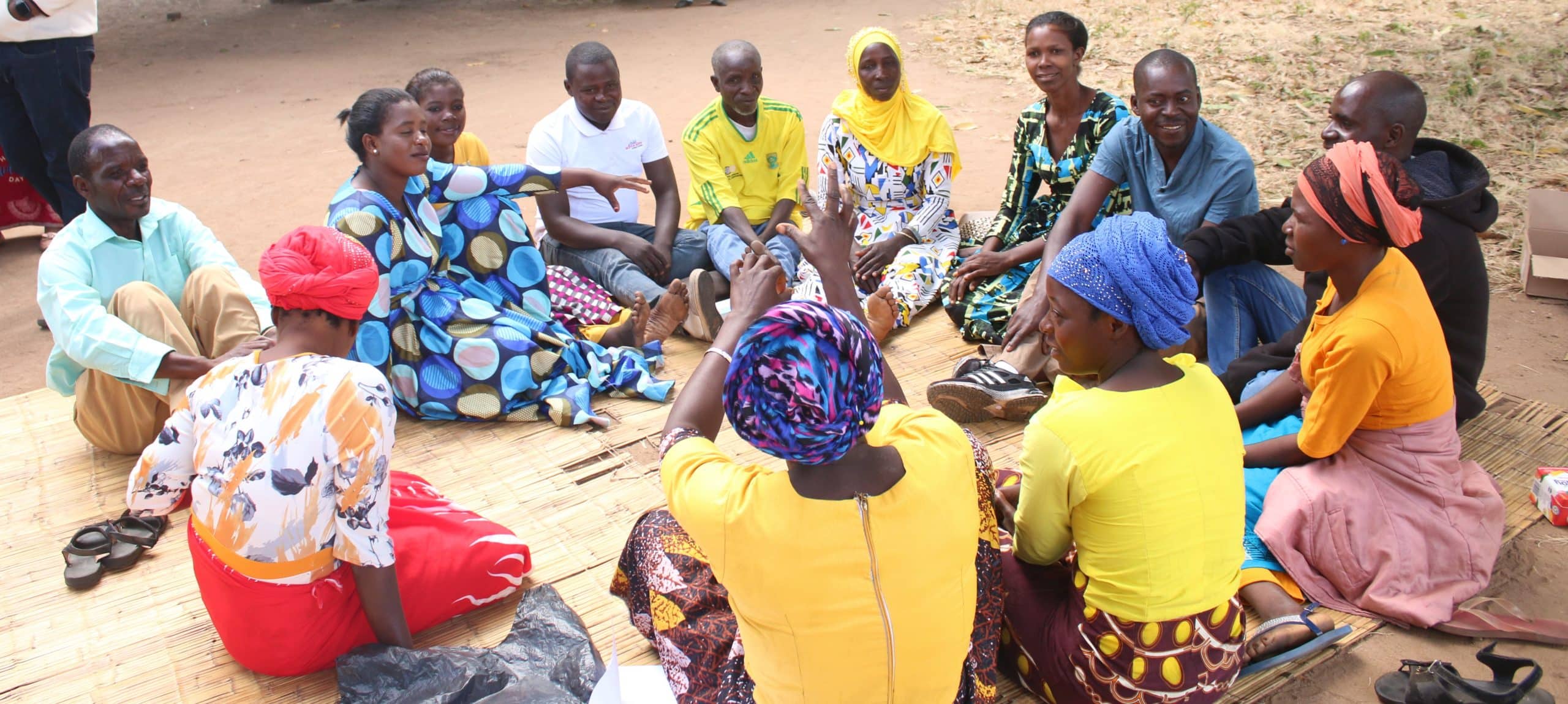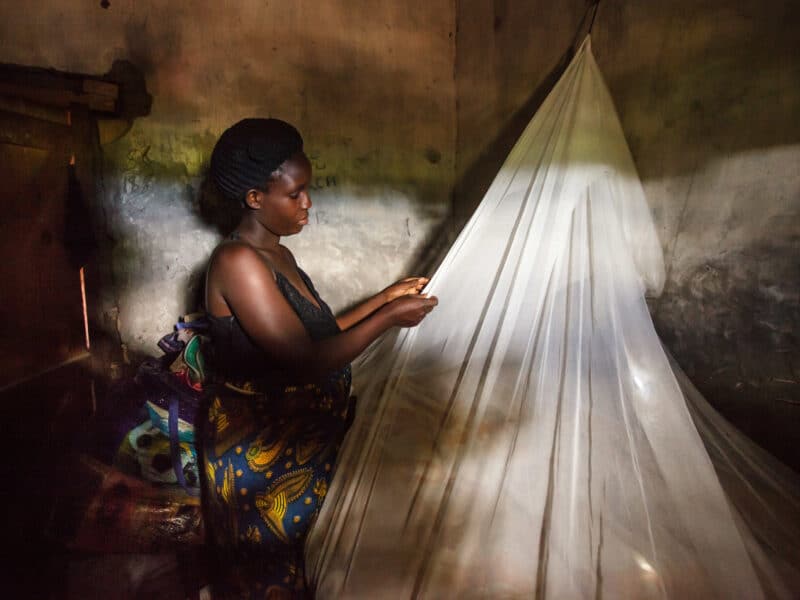From a distance, you can see a group of men and women seated in a small circle. They are deep in discussion. As you get closer, you can hear them talking about malaria in their community.
This is the Juma Community Health Action Group, hard at work envisioning a healthier future for themselves, their neighbors and their families.
Juma, home to about 2,500 people, is a small village in Malawi, which like many others struggles with preventing and treating the deadly disease spread by mosquitoes that carry the parasite that causes malaria.
The 15 members of the Juma Community Health Action Group work closely with the Johns Hopkins Center for Communication Programs-led Breakthrough ACTION to help improve health-seeking practices, especially related to malaria. This includes seeking treatment for fevers and reminding pregnant women to take medicine to prevent malaria. The group conducts community meetings and goes door-to-door, using drama, poems and songs to engage their neighbors, address myths associated with mosquito nets and ensure people are using their nets correctly.
With funding from the U.S. President’s Malaria Initiative, Breakthrough ACTION trained the Juma Community Health Action Group to develop community action plans and to mobilize. The approach seems to be working: In April 2022, Juma registered 44 cases of malaria. In May, the number went down to 30 and, in June, they only registered 15 cases in the community.
“We expect to see a lot of change in Juma and other communities where we work,” says CCP’s Angela Chitsime, a senior program officer for malaria with Breakthrough ACTION. “Communities trust their Community Health Action Groups. The groups provide a platform for community members to be heard, identify solutions, and influence service providers. It has proven to be an effective way of ensuring communities fully participate in the process and own the interventions.”





